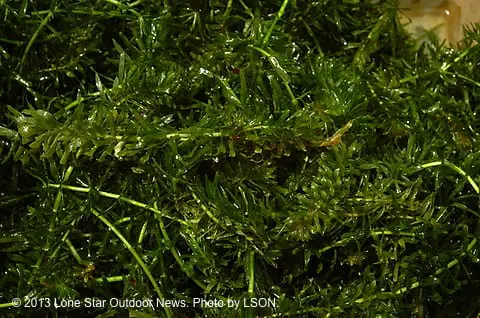One of the best bass lakes in Texas might be getting better. Or worse.
A vegetation survey of Lake Austin by the Texas Parks and Wildlife Department in September revealed that the exotic plant hydrilla was finally under control.
The survey found no hydrilla. It also documented that 203 acres of aquatic vegetation habitat, mostly Eurasian watermilfoil (milfoil), was still present in the reservoir. In the June 2013 survey, there were 330 acres of hydrilla and 135 acres of milfoil. The successful control of hydrilla was a result of a science-based stocking plan of sterile Asian grass carp, which target hydrilla as their main food source.
Hydrilla has been established in Lake Austin since 1999, and this aggressive, invasive plant has posed significant safety concerns as its dense growth has impacted flood flows, water intakes and recreation on the lake. It reached a historic high coverage of over 600 acres in February 2013, due primarily to drought-induced low flows and warmer water temperatures that the plant prefers.
With the decline of hydrilla coverage, milfoil, a less aggressive exotic plant, has expanded and is providing critical benefits like aquatic habitat for fish and other wildlife, while helping maintain good water quality and excellent fishing opportunities in this reservoir.
It is important to remember that while hydrilla is under control, it is probably not eradicated. Over time, the grass carp population will decline naturally, and hydrilla may re-sprout from its underground tubers. Changes in water flow and temperature may also impact growth rates, so the City and TPWD will continue to monitor Lake Austin vegetation and implement control efforts as needed. Native aquatic vegetation establishment projects, as conducted by the City of Austin’s Watershed Protection Department, will continue to be supported to supplement aquatic habitat. As always, control measures will consider the interests of all lake users.


